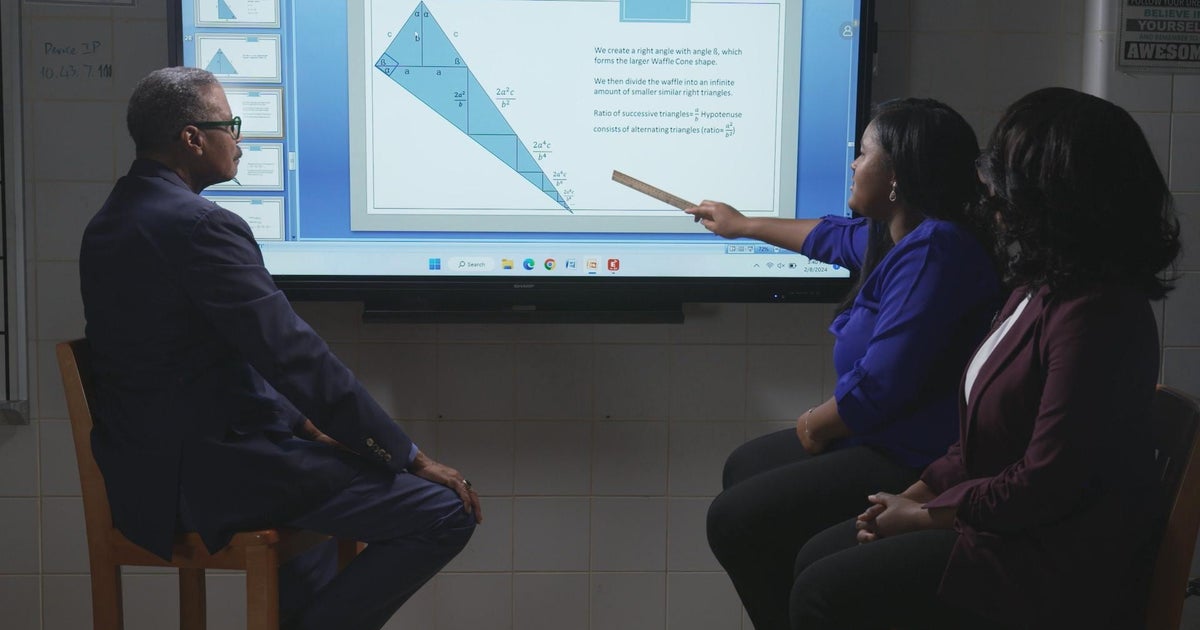What skills will today's students need tomorrow?
This time of the year, the question many high school- and college-age kids often ask is: “What should I be studying now so that I’ll have a good job later?”
With my two daughters -- one in college and the other in high school -- this is never easy to answer. It’s flummoxing parents around the world in an anxious age of an unforgiving global economy.
But as the year winds down and students get closer to entering a harsh world in which truly decent-paying jobs are ever scarcer, we need to break this question down and offer some thoughtful guidelines.
The baby boomer in me wants to respond: “Follow your passion, find your bliss.” But I know they might not be able to pay the rent if they get a degree in the arts or literature, although what one studies in college may not correlate with the career one ultimately chooses.
Then there’s the sensible, conservative parent in me, blurting out “engineering” or “accounting,” two professions I naively sense aren’t going away soon, although they may be automated or outsourced like nearly everything else in the white-collar world. No job is truly safe in the future.
Since I read and digest reports like the World Economic Forum’s “Future of Jobs,” which was published earlier this year, it’s hard to be optimistic for any careers outside of the scientific and technical realm. The WEF is one of those big-picture global think tanks that caters to corporate leaders.
Its report predicts that jobs will be lost over the next four years in the arts, office, administrative, construction, entertainment and manufacturing sectors.
The reasons for job loss are the usual suspects: automation, climate change, urbanization and what they call “the changing nature of work.” That usually means more jobs will be outsourced, handled by fewer people or just eliminated as corporations tighten their belts and lower labor costs by moving them to developing countries.
Yet it’s difficult to look at broad trends or predict what the future job market will bring. Of course, plenty of research aims to tell you which degrees or professions offer the greatest salary growth.
Companies like Payscale, for example, try to help you “choose the degree and school that will set you up for the career and salary of your dreams.” If you use the Payscale College Salary report as a benchmark, you’re probably best off considering a career in actuarial science or petroleum, systems, chemical or nuclear engineering. These were the top-paying professions in Payscale’s most recent study.
The flaw with taking this view, however, is that the data looks backward, and making predictions based on past results is hazardous. Occupational outlooks change because of technology, communications and labor shifts to emerging nations. Although I’m certainly no expert on this, I imagine the pressing issue of climate change will put intense pressure on the petroleum and chemical engineering fields.
Picking a major or future profession isn’t like replacing the roof on your home, which you expect to be durable for the next two decades or so. You can easily enter the workforce with one discrete skill set and end up doing something different.
I received a bachelor’s degree in one discipline (psychology) and ended up in a profession for which I had no academic training (journalism). The courses that were most useful for me over the decades? Statistics and research, which were core studies in my training to become a social scientist.
What if you simply looked at careers that are less “siloed,” that is, they allow for flexibility and you can go beyond a narrow job description over time? There’s more vocational hope in taking this approach.
Rather than picking one major or one profession and assume that it will remain fairly static or guarantee lifetime employment, it’s wise to adopt a broader approach. Focus on a skill set rather than a specific degree.
You might find some surprises in adopting the skill-set strategy. When you drill down into the Payscale data, for example, some degrees offer faster salary growth than others, according to expertmarket.com, a business services company. Expertmarket culled a list of the “college disciplines with the quickest salary progressions.” It found a few surprises.
Math, the major with the fastest salary growth -- 80 percent by mid-career -- wasn’t a shocker because nearly every technical and financial field craves people who are good with numbers. Engineering placed third, with 63 percent growth.
But here’s some hope for future artists, journalists, scholars and sociologists: Media and communications placed second in salary growth at 79 percent. Social science was fourth (62 percent); art and humanities were seventh and eighth (59 percent), respectively.
While you can safely conclude that communicators and artists start out much lower on the salary scale than those in technical fields -- and often have nowhere to go but up -- another factor is at play: More jobs are demanding that you effectively write, speak, persuade and collaborate with employees.
Being a solid communicator and collaborator means not relying solely on one skill and sitting alone in your cube. It involves “cross-functional skills,” noted the WEF report. In practical terms, it means good time management, emotional intelligence and the ability to teach and train others.
The skill-set focus also embraces a hybrid approach that may defy the label of a specific degree. Combining the ability to analyze data with concise writing and speaking skills will be in increasing demand as boundaries blur even more between the technical realm and changing job descriptions.
“Many formerly purely technical occupations are expected to show a new demand for creative and interpersonal skills,” the WEF report authors concluded.
So if you’re having a discussion about college majors or post-college careers now, keep in mind that the arts and literature are still vitally important, but look more toward the intersection of science, technology and the humanities.
That way, a future fork in one’s career path will be much more promising and less likely to be a wrong turn.




